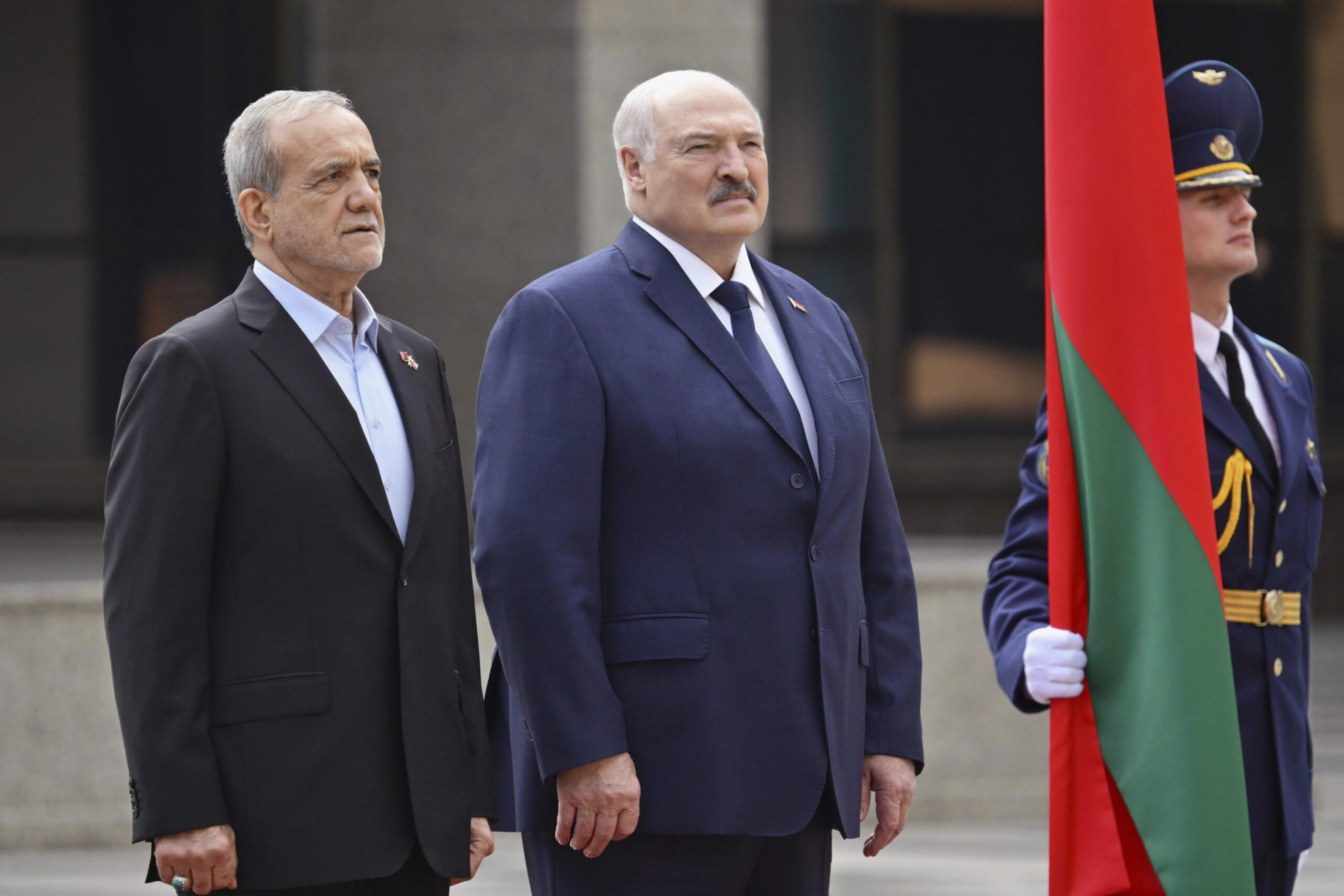Russian allies Belarus and Iran agree to boost bilateral defense ties

In this photo, released by Belarusian Presidential Press Service, Belarusian President Alexander Lukashenko, center, and Iranian President Masoud Pezeshkian, left, attend a welcome ceremony prior to their talks in Minsk, Belarus, Wednesday, Aug. 20, 2025. (Belarusian Presidential Press Service via AP)
The leaders of Belarus and Iran signed new agreements on Wednesday to boost bilateral ties in key areas including defense, the two governments said.
Presidents Alexander Lukashenko and Masoud Pezeshkian signed a package of 13 documents in the Belarusian capital, Minsk.
Both governments have been placed under heavy sanctions, limiting potential trading partners. Pezeshkian said Iran would help Belarus to “neutralize” such measures, citing Tehran’s decades of experience circumventing Western economic restrictions.
Lukashenko told Pezeshkian that Belarus was “ready to cooperate with you on all issues — from providing your country with food to military-technical cooperation,” calling the Iranian president a “friend.”
The two parties did not disclose any further details on how the countries intend to cooperate in the defense sector. Other areas covered by the agreement include industry and tourism, as well as joint initiatives in science, technology and education.
Access to Belarus’ wood processing and chemical industry, as well as potash fertilizers, can all bring potential benefits to Iran.
The two presidents also said their countries would start work toward a strategic partnership treaty.
Lukashenko, a close ally of President Vladimir Putin, allowed Russia to use Belarusian territory as a staging ground for Moscow’ full-scale invasion of Ukraine and later allowed the deployment of Russian tactical nuclear missiles.
Iran has supplied Russia with drones for use in the war, and Pezeshkian signed a strategic cooperation treaty with Putin in January, although it did not include a mutual defense clause.
The Iranian president’s visit to Minsk has been postponed several times due to U.S. strikes on Iran’s nuclear facilities. Lukashenko called the strikes on Iran’s nuclear infrastructure “a serious threat to regional and international stability and security.”
“We support Iran’s legitimate right to develop peaceful nuclear energy,” Lukashenko said.
